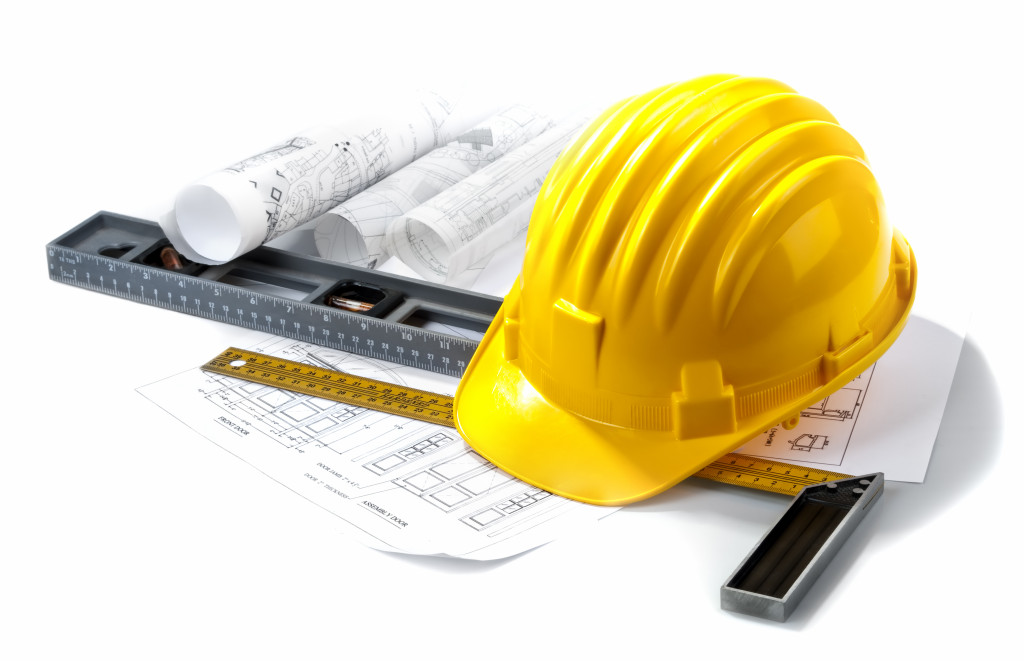- Research and understand your market to identify your target audience and analyze competitors.
- Hone your financial management skills by keeping detailed records, maintaining a contingency fund, and hiring financial experts.
- Invest in quality equipment and technology for efficiency, safety, and sustainability.
- Prioritize safety through training and strict protocols to protect employees and attract clients.
- Stay compliant with necessary certifications and have a crisis management plan to handle unexpected challenges.
Starting a construction business is no small feat. The road to success is challenging, from securing clients to managing complex projects. But your construction startup can survive and thrive in this competitive market with grit, determination, and the right strategies. If you’re seeking insights to bolster your venture, the following tips are tailored for you.
1. Research and Understand Your Market
Before you lay the foundation for your startup, it’s paramount to have a deep understanding of the market you’re entering.
Begin by identifying your target audience. Are you catering to residential or commercial clients? What are the needs and preferences of this group? Conduct surveys and gather feedback to refine your offerings. Additionally, study your competitors.
Analyzing their strengths and weaknesses will allow you to position your startup effectively, ensuring you stand out in the crowded marketplace. Remember, market knowledge isn’t static; it’s an ongoing process, so revisit and revise your strategies as you grow.
2. Hone Your Financial Management Skills

In the construction sector, managing finances efficiently can be the difference between success and insolvency.
Ensure that you maintain detailed records of all your expenses and incomes. This helps track your projects’ profitability and assists in tax filings. Additionally, always have a cushion fund.
Construction projects often face unforeseen expenses; having a contingency fund ensures these surprises don’t derail your operations. Finally, consider hiring a dedicated financial expert or consultant, especially if numbers aren’t your strong suit. They can provide insights into investment opportunities and cost-saving strategies.
3. Invest in Quality Equipment and Technology
The construction industry continuously evolves, with new technologies ushering in more efficient and safer working methods. Invest in top-notch equipment right from the outset. While it may seem like a significant upfront cost, quality machinery reduces long-term maintenance expenses and enhances productivity.
Moreover, adopt modern software solutions for project management, scheduling, and client communication. Leveraging technology streamlines operations and portrays your startup as forward-thinking and modern, appealing to a broader clientele.
Here are some quality equipment and technology to invest in:
Construction Machinery
Invest in reliable and durable construction machinery that can weather demanding site conditions. Excavators, loaders, cranes, and other heavy-duty machinery are at the heart of any construction project, making them worthy investments. Ensuring your equipment is of high quality reduces downtime due to maintenance or breakdowns, significantly impacting project timelines and profitability.
Digital Tools
Embrace the digital revolution by investing in software tools that help manage various aspects of your construction business. Project management software, for instance, can help you plan and track project progress, manage resources, and improve team collaboration. Tools for estimating and bidding can help you make more accurate project quotes, enhancing profitability.
Safety Equipment

Safety should be a top priority in the construction industry. Ensure that your startup is equipped with the latest safety gear and equipment. This includes hard hats, safety glasses, high-visibility clothing, and other personal protective equipment. Also, invest in safety training for your staff to foster a culture of safety awareness and compliance.
Sustainable Technology
The construction industry is increasingly embracing green practices. Investing in eco-friendly technologies helps conserve the environment and positions your startup as a responsible and forward-thinking enterprise. Consider sustainable building materials, energy-efficient equipment, and waste management solutions. These investments can pay off in the long run, not just in cost savings but also in enhancing your brand’s reputation.
4. Prioritize Safety and Training
Safety should be a non-negotiable tenet of your startup. A safe work environment protects your employees and minimizes delays and liabilities.
Implement strict safety protocols and ensure all your staff undergo regular safety training. Investing in safety training showcases your commitment to your team’s well-being, leading to higher morale and retention rates. Furthermore, a company with an excellent safety record is likelier to win contracts as clients prefer associating with responsible and reliable businesses.
5. Stay Compliant and Be Prepared for the Unexpected
In the construction world, unforeseen challenges are par for the course. However, by staying compliant and being proactive, you can navigate these hurdles effectively.
Ensure that all your licenses, permits, and certifications are up-to-date. For professionals in the UK, the CSCS card is an essential certification, demonstrating your expertise and commitment to safety. And just a tip — if you ever misplace it or it gets damaged, you can efficiently replace your lost or damaged CSCS card, ensuring that your operations remain unhindered.
Also, always have a crisis management plan in place. Being prepared allows you to pivot swiftly, safeguarding your startup’s sustainability, whether it’s a supply chain disruption or a sudden market downturn.
In Summary
Running a construction startup is undoubtedly challenging, but success is within your grasp with careful planning, unwavering commitment, and a customer-centric approach.
As you journey through the highs and lows of entrepreneurship, remember to remain adaptable, continuously update your skills and knowledge, and always prioritize the safety and well-being of your team. The construction realm is replete with opportunities; your startup can capture a significant share of this promising market with the right strategies.
